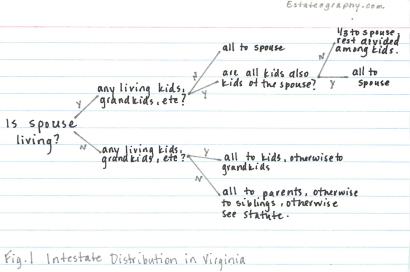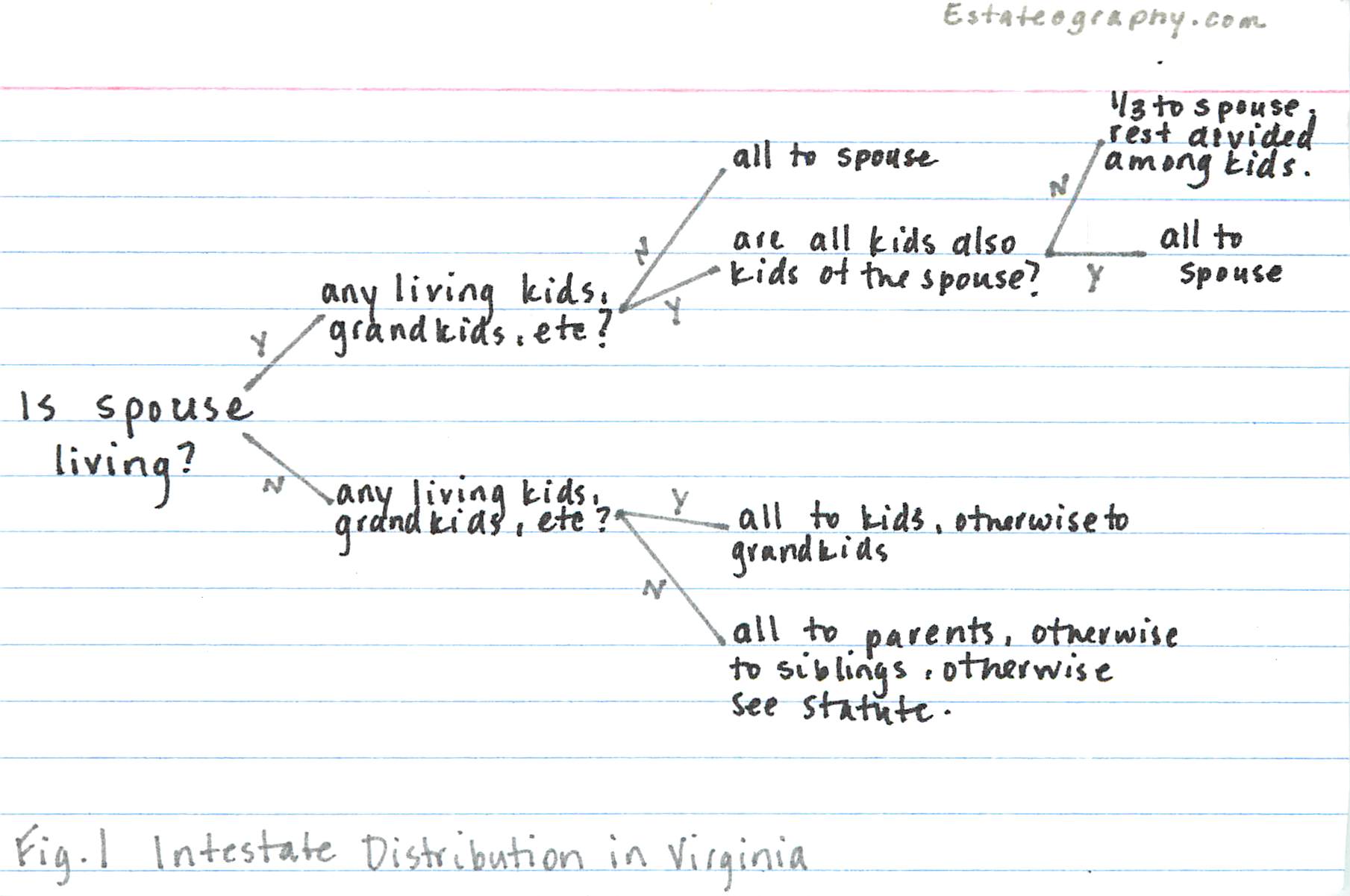Dying Without A Will in Virginia

Having a Will vs. Intestacy
A will is a legal declaration, usually written, that tells the world how your property should be distributed when you die, who should take care of your minor children, and who should be responsible for handling your final affairs.
If you die without a valid will, the laws and courts of your state make all the choices about who gets your property that passes through probate, who takes care of your kids, and who handles your estate. Dying without a will is called dying "intestate," and the laws that say what happens if you die intestate are often called "intestatcy" laws.
Intestacy Laws in Virginia
Virginia's intestacy laws are in Title 64.2 of the Virginia Code.
Who gets what?
Here's a chart that summarizes (without all the nuances that are in the acutal statute!) who-gets-what under Virginia's intestacy laws:

In many situations, the intestacy laws will produce the results many people would have chosen for themselves. (That's presumably why the legislators wrote them as they did.) But, in some circumstances, the results can be surprising.
Assume Henry and Wendy are happily married. Henry is 35, and Wendy is 33. Their net worth is around $500,000, with Wendy owning $100,000 and Henry owning $400,000. Neither has valid will. Here are a few of the results that may surprise you:
-
Assume Henry dies in an accident. Even though they've only been married for a year, Wendy, as Henry's surviving spouse, gets everything. Now assume Wendy dies 1 year later. Everything goes to Wendy's parents.
-
Assume instead Wendy remarries after Henry's death. She then dies, survived by her second husband. Wendy's second husband gets everything.
-
Now assume Henry was married to Ellen before he married Wendy, and Henry and Ellen had a child, Kerry. Wendy, as Henry's surviving spouse, gets 1/3 of his estate. Since Wendy and Henry didn't have any children, Kerry would get the remaining 2/3. If Wendy and Henry had two children, Wendy would still get 1/3, and each of Henry's children (including Kerry) would get 2/9 of his estate.
Avoiding Intestacy
As I explained at the beginning of this post, a will is a legal declaration that tells the world how your property should be distributed when you die, who should take care of your minor children, and who should be responsible for handling your final affairs. A valid (and comprehensive) will opts its maker out of intestacy.
